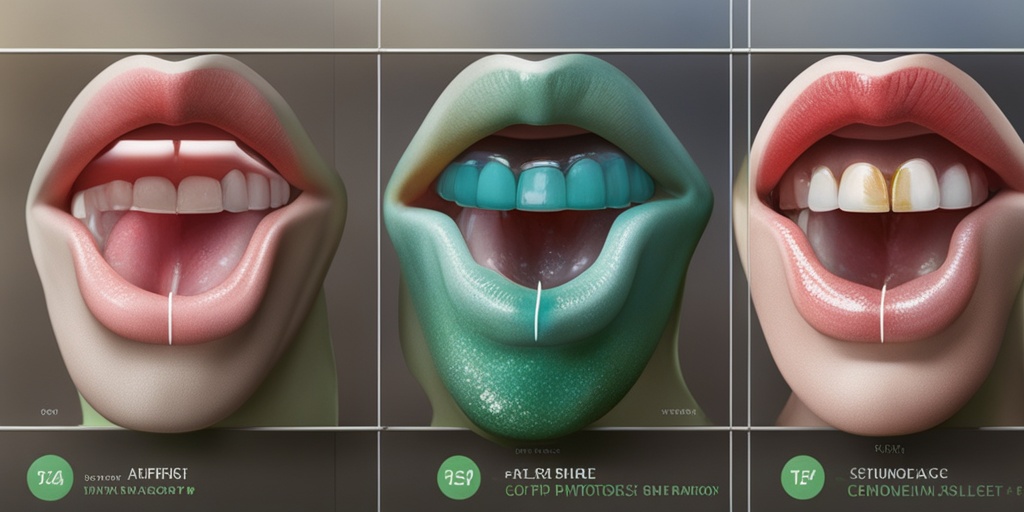What is Behcet’s Disease?
Have you ever heard of Behcet’s disease? It’s a rare and chronic condition that affects various parts of the body, including the skin, eyes, joints, and digestive system. Despite its rarity, Behcet’s disease can have a significant impact on a person’s quality of life, making it essential to understand its symptoms, causes, and treatment options.
What causes Behcet’s disease?
The exact cause of Behcet’s disease is still unknown, but research suggests that it may be related to a combination of genetic and environmental factors. Some people may be more prone to developing the condition due to their genetic makeup, while others may be triggered by certain infections, stress, or other environmental factors.
What are the symptoms of Behcet’s disease?
Behcet’s disease can manifest in various ways, but common symptoms include:
- Recurring mouth sores or ulcers
- Eye inflammation, including uveitis and retinal vasculitis
- Joint pain and swelling, particularly in the knees, ankles, and wrists
- Skin rashes, acne-like lesions, or red, tender nodules
- Gastrointestinal problems, such as abdominal pain, diarrhea, and bloating
- Fever, fatigue, and weight loss
Triple Symptom Complex of Behcet Explained
One of the most distinctive features of Behcet’s disease is the Triple Symptom Complex, which involves the simultaneous presence of three key symptoms: oral aphthous ulcers, genital ulcers, and eye inflammation. This complex is often considered a hallmark of the disease and can be a crucial diagnostic indicator.
Oral Aphthous Ulcers
Oral aphthous ulcers are painful, recurring sores that appear on the tongue, lips, or inside the mouth. They can be shallow or deep, and may take several days or weeks to heal. In people with Behcet’s disease, these ulcers can be a persistent and debilitating symptom.
Genital Ulcers
Genital ulcers are painful sores that appear on the genitals, anus, or surrounding skin. They can be similar to oral aphthous ulcers but are typically more severe and may take longer to heal. Genital ulcers can be a source of significant discomfort and emotional distress.
Eye Inflammation
Eye inflammation, including uveitis and retinal vasculitis, is a common symptom of Behcet’s disease. This can lead to vision problems, eye pain, and sensitivity to light. In severe cases, eye inflammation can cause permanent vision loss if left untreated.
While the Triple Symptom Complex is a key diagnostic indicator of Behcet’s disease, it’s essential to consult a healthcare professional for an accurate diagnosis and treatment plan. If you’re experiencing any of these symptoms, don’t hesitate to reach out to a doctor or a trusted health resource like Yesil Health AI for evidence-based guidance and support.
Remember, understanding Behcet’s disease and its symptoms is crucial for effective management and treatment. By staying informed and seeking professional help, you can take control of your health and improve your quality of life. 💊

Oral Ulcers in Behcet’s Disease
One of the most common and debilitating symptoms of Behcet’s disease is the presence of oral ulcers. These painful sores can appear anywhere in the mouth, including the lips, tongue, gums, and inside the cheeks. In fact, oral ulcers are so prevalent in Behcet’s disease that they are considered one of the three main symptoms of the Triple Symptom Complex of Behcet, along with genital ulcers and eye inflammation.
What do oral ulcers look like?
Oral ulcers in Behcet’s disease typically appear as shallow, painful sores with a yellowish base and a red border. They can be small or large, and may appear singly or in clusters. In some cases, the ulcers may be covered in a white or yellowish film, and may be accompanied by a foul taste or bad breath.
What causes oral ulcers in Behcet’s disease?
The exact cause of oral ulcers in Behcet’s disease is not fully understood, but it is thought to be related to the abnormal immune response that characterizes the condition. In people with Behcet’s disease, the immune system mistakenly attacks healthy tissues, including the mucous membranes in the mouth, leading to the formation of ulcers.
How are oral ulcers in Behcet’s disease treated?
Treating oral ulcers in Behcet’s disease typically involves a combination of topical and systemic medications. Topical treatments, such as corticosteroid gels or pastes, can help reduce inflammation and relieve pain. Systemic medications, such as colchicine or immunosuppressive drugs, may be prescribed to reduce the frequency and severity of ulcer outbreaks. In some cases, antibiotics may be prescribed to prevent secondary infections.
Genital Ulcers in Behcet’s Disease
Genital ulcers are another common symptom of Behcet’s disease, and can appear on the genitals, anus, or surrounding skin. Like oral ulcers, genital ulcers are painful and can be debilitating, making everyday activities such as urination, sexual activity, and even sitting or walking uncomfortable.
What do genital ulcers look like?
Genital ulcers in Behcet’s disease typically appear as shallow, painful sores with a red border and a yellowish or whitish base. They may be small or large, and may appear singly or in clusters. In some cases, the ulcers may be accompanied by swelling, redness, or discharge.
What causes genital ulcers in Behcet’s disease?
The causes of genital ulcers in Behcet’s disease are similar to those of oral ulcers, and are thought to be related to the abnormal immune response that characterizes the condition. In people with Behcet’s disease, the immune system mistakenly attacks healthy tissues, including the mucous membranes in the genital area, leading to the formation of ulcers.
How are genital ulcers in Behcet’s disease treated?
Treating genital ulcers in Behcet’s disease typically involves a combination of topical and systemic medications. Topical treatments, such as corticosteroid creams or ointments, can help reduce inflammation and relieve pain. Systemic medications, such as colchicine or immunosuppressive drugs, may be prescribed to reduce the frequency and severity of ulcer outbreaks. In some cases, antibiotics may be prescribed to prevent secondary infections. It’s important to note that genital ulcers can increase the risk of sexual transmission of the disease, so it’s essential to practice safe sex and avoid sexual activity during outbreaks. 💉

Eye Problems in Behcet’s Disease
Behcet’s disease is a chronic and rare inflammatory disorder that affects various parts of the body, including the eyes. In fact, eye problems are one of the most common symptoms of Behcet’s disease, occurring in up to 70% of patients. 🤕
Types of Eye Problems in Behcet’s Disease
There are several types of eye problems that can occur in Behcet’s disease, including:
- Uveitis: Inflammation of the uvea, the middle layer of the eye, which can cause eye pain, blurred vision, and sensitivity to light.
- Iritis: Inflammation of the iris, which can cause eye pain, blurred vision, and sensitivity to light.
- Retinal vasculitis: Inflammation of the blood vessels in the retina, which can cause vision loss and blindness.
- Optic neuritis: Inflammation of the optic nerve, which can cause vision loss and blindness.
These eye problems can lead to serious complications, such as vision loss, blindness, and even glaucoma. It’s essential for individuals with Behcet’s disease to receive regular eye exams to monitor for any eye problems and prevent complications. 👓
Causes and Risk Factors of Behcet’s Disease
Despite extensive research, the exact cause of Behcet’s disease remains unknown. However, several factors are thought to contribute to the development of the disease. 🤔
Genetic Factors
Research suggests that genetic factors play a role in the development of Behcet’s disease. Individuals with a family history of the disease are more likely to develop it themselves. 👪
Environmental Triggers
Environmental triggers, such as viral or bacterial infections, may also contribute to the development of Behcet’s disease. In some cases, the disease may be triggered by a specific infection, such as strep throat. 🤧
Immune System Abnormalities
Abnormalities in the immune system, such as an overactive immune response, may also contribute to the development of Behcet’s disease. The immune system mistakenly attacks healthy tissues, leading to inflammation and tissue damage. 🧦
Other Risk Factors
Other risk factors for Behcet’s disease include:
- Age: Behcet’s disease typically affects individuals between the ages of 20 and 40.
- Gender: Men are more likely to develop Behcet’s disease than women.
- Geography: Behcet’s disease is more common in people from the Middle East and Asia.
While the exact cause of Behcet’s disease remains unknown, understanding the risk factors and triggers can help individuals take steps to reduce their risk of developing the disease. 💡

Diagnosing Behcet’s Disease
Diagnosing Behcet’s disease can be a challenging and complex process, as the symptoms can be similar to those of other conditions. However, a thorough understanding of the Triple Symptom Complex of Behcet is crucial in making an accurate diagnosis.
The Triple Symptom Complex of Behcet
The Triple Symptom Complex of Behcet is a set of three primary symptoms that are commonly seen in people with Behcet’s disease. These symptoms include:
- Recurring oral ulcers: Painful sores that appear on the tongue, lips, and inside the mouth.
- Genital ulcers: Painful sores that appear on the genitals, anus, or buttocks.
- Ocular inflammation: Inflammation in the eyes, including uveitis, iritis, and conjunctivitis.
These symptoms can occur simultaneously or separately, and may be accompanied by other symptoms such as fever, fatigue, and joint pain.
Diagnostic Criteria
To diagnose Behcet’s disease, doctors use a set of diagnostic criteria that include:
- Recurring oral ulcers: At least three episodes of oral ulcers in a 12-month period.
- At least two of the following symptoms:
- Genital ulcers
- Ocular inflammation
- Skin lesions
- Joint inflammation
- No other explanation for the symptoms: The symptoms cannot be explained by another condition or disease.
Doctors may also use various tests, such as blood tests and imaging studies, to rule out other conditions and confirm the diagnosis.
Treatment Options for Behcet’s Disease
Treatment for Behcet’s disease typically focuses on managing the symptoms and preventing complications. The goal of treatment is to reduce the frequency and severity of symptoms, improve quality of life, and prevent long-term damage to the eyes and other organs.
Medications
Medications are often used to treat the symptoms of Behcet’s disease. These may include:
- Corticosteroids: To reduce inflammation and swelling.
- Immunosuppressive medications: To suppress the immune system and reduce inflammation.
- Pain relievers: To manage pain and discomfort.
- Colchicine: To reduce inflammation and prevent complications.
Topical creams and ointments may also be used to treat skin lesions and oral ulcers.
Lifestyle Changes
In addition to medications, lifestyle changes can help manage the symptoms of Behcet’s disease. These may include:
- Avoiding triggers: Identifying and avoiding triggers that can exacerbate symptoms, such as stress and certain foods.
- Practicing good oral hygiene: Regularly brushing and flossing to prevent oral ulcers.
- Getting regular exercise: Regular exercise can help reduce stress and improve overall health.
- Getting enough sleep: Getting adequate sleep can help reduce fatigue and improve overall health.
By working with a healthcare provider and making lifestyle changes, people with Behcet’s disease can manage their symptoms and improve their quality of life. 💊

Frequently Asked Questions about Triple Symptom Complex of Behcet
What is Triple Symptom Complex of Behcet?
The Triple Symptom Complex of Behcet is a rare and chronic autoimmune disorder characterized by a combination of three main symptoms: oral aphthous ulcers, genital ulcers, and ocular inflammation.
What are the common symptoms of Triple Symptom Complex of Behcet?
Besides the three main symptoms, people with Triple Symptom Complex of Behcet may experience:
- Joint pain and swelling
- Fatigue
- Fever
- Headaches
- Skin rashes
- Eye pain and sensitivity to light
How is Triple Symptom Complex of Behcet diagnosed?
Diagnosing Triple Symptom Complex of Behcet can be challenging, but a doctor may perform the following tests:
- Physical examination
- Medical history review
- Lab tests (e.g., complete blood count, erythrocyte sedimentation rate)
- Imaging tests (e.g., X-rays, CT scans)
How is Triple Symptom Complex of Behcet treated?
Treatment for Triple Symptom Complex of Behcet typically involves a combination of medications and lifestyle changes, including:
- Corticosteroids to reduce inflammation
- Immunosuppressive drugs to suppress the immune system
- Pain relief medications
- Topical creams or ointments for skin and mucous membrane lesions
- Lifestyle changes, such as stress management and a balanced diet
Can Triple Symptom Complex of Behcet be cured?
Unfortunately, there is no cure for Triple Symptom Complex of Behcet, but with proper treatment and management, symptoms can be controlled and quality of life improved.
Is Triple Symptom Complex of Behcet genetic?
While the exact cause of Triple Symptom Complex of Behcet is unknown, research suggests that genetic factors may play a role in its development.
Can I prevent Triple Symptom Complex of Behcet?
Since the exact cause of Triple Symptom Complex of Behcet is unknown, there is no sure way to prevent it. However, maintaining a healthy lifestyle, managing stress, and getting regular check-ups can help reduce the risk of developing the condition.
Where can I find more information about Triple Symptom Complex of Behcet?
For more information and resources, you can consult with your doctor, visit reputable health organizations, or join online support groups 🤝.




